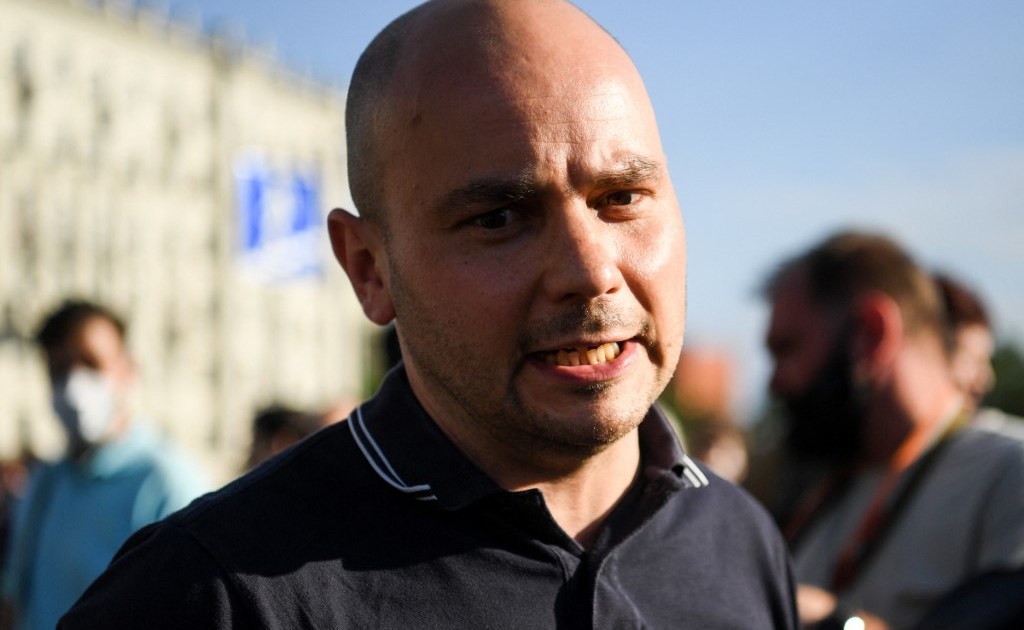Russian opposition activist Andrei Pivovarov jailed for 4 years
Clampdown on activists, independent media and rights groups has intensified since Russia invaded Ukraine on Februarty 24.
Russian opposition activist Andrei Pivovarov was sentenced to four years in prison for leading a banned pro-democracy group, the latest move in the Kremlin’s multi-pronged crackdown on opposition activists, independent media and rights groups in the country.
Pivovarov, 40, is the former head of Open Russia, a now disbanded pro-democracy group established by exiled tycoon Mikhail Khodorkovsky.
He was sentenced on Friday by a court in the southern Russian city of Krasnodar after being charged with “directing an undesirable organisation”, which is a criminal offence under a 2015 law.
The well-known had maintained his innocence and insisted that the charges against him were brought because of his plans to run for parliament in September 2021.
“Andrei Pivovarov was sentenced to four years in a standard-regime penal colony,” his aides wrote on Facebook after the verdict. The activist will also be banned from conducting any political activities for eight years.
Speaking from his metal cage in court, Pivovarov said that change in Russia would come, sooner or later.
“And even if now those who stand for the future are trampled and imprisoned, I know that progress cannot be stopped, changes for the better are inevitable, and they are not far off,” he said.
‘Order and security’
Pivovarov is the latest critic of President Vladimir Putin to be sent to prison as Moscow moves to stifle the last vestiges of dissent as its war in Ukraine continues.
The latest crackdown began with the arrest and jailing of opposition leader Alexey Navalny in January 2021. It then intensified after Putin sent troops into Ukraine on February 24, with the remaining Kremlin critics facing charges for publicly denouncing the war.
Since then, dozens of opposition activists have faced prosecution and pressure from the authorities. Many have left Russia, while others have been imprisoned.
All main independent media outlets have been shut down or suspended, Instagram and Facebook have been banned, and any criticism of Moscow’s offensive in Ukraine is outlawed.
Earlier this week, a court in Moscow remanded another top opposition figure, Ilya Yashin, in custody pending investigation and trial on the charges of spreading false information about the Russian military. Yashin was one of the few prominent opposition politicians who had not left Russia.
Also Friday, Russian authorities declared two investigative news outlets “undesirable,” outlawing their operation in Russia.
The Prosecutor General’s office told Russia’s state news agency Tass that the investigative group Bellingcat and the Russian online outlet The Insider, as well as the Czech nonprofit CEELI Institute, “pose a threat to the foundations of the constitutional order and security” of Russia.
The Insider, a news outlet registered in Latvia, has worked with Bellingcat on high-profile cases such as the nerve agent poisonings of former Russian spy Sergei Skripal and Russian opposition leader Navalny.
The websites of both news organisations have been blocked in Russia since the beginning of the war in Ukraine.




